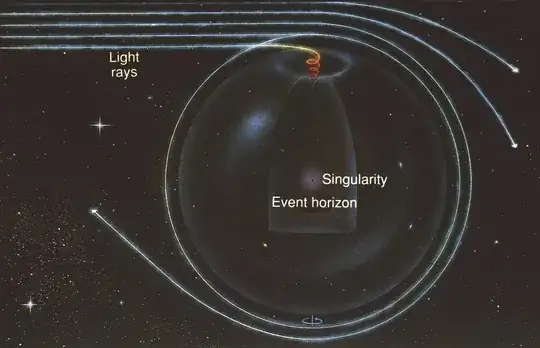Earth reflects light from Sun into Space; are there any "mirror like" objects which reflect back to Earth this light? Has anyone been able to use this method to recover some information on how was the Earth in the past (how it looked, what was it temperature, etc)?
2 Answers
You can think of super massive object like black holes which can bend light. Near the event Horizon you could get a 180 degree turn for light and thus see the earth back in time.
 But I do not think this is practically possible as earth is small and dark (compared to stars) and this layer would get compressed really thin as some small deviation in the incoming light direction would result in big deviation in the outgoing light direction.
But I do not think this is practically possible as earth is small and dark (compared to stars) and this layer would get compressed really thin as some small deviation in the incoming light direction would result in big deviation in the outgoing light direction.
- 78
Detecting reflected light from a "past Earth" is an interesting thought. Even a spectrum might tell you something about the composition, temperature of the atmosphere etc, even if as been correctly said in other answers/comments, the spatial resolution to actually image the Earth would need to be several orders of magnitude better than the Hubble Space Telescope can achieve. [To be exact, an image of the Earth seen at 2000 light years would subtend an angle of $1.4\times10^{-7}$ arcseconds, which is 400,000 times better than can be achieved with HST.]
In this related question you can see how I calculated that the apparent magnitude of the Earth, reflected from a large plane mirror at a distance of 1000 light years, would be $m \sim 36$ (a non-specular reflection might be as faint as $m\sim 85$) and hence far too dim (by $>2$ orders of magnitude) to be even detected by current technology - the limiting magnitude for HST ultra deep field observations is $m \sim 30$. (Leaving aside the question of why or how there was a plane mirror out there!)
Given that we already know a lot about the Earth over the last 1000 years, you would actually want the reflector to be a lot further way than this to see further into the past and the received signal will decrease as $d^{-2}$.
So the answer is no, not a chance.